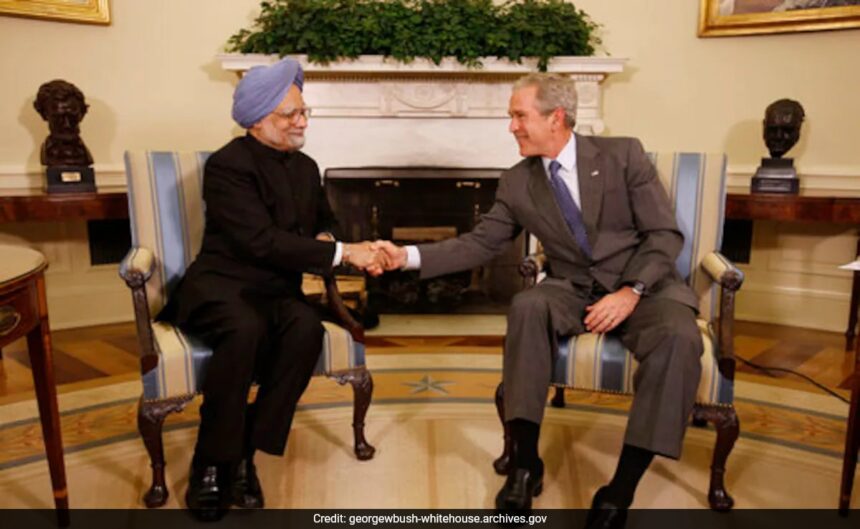In a historic moment for India’s foreign policy, the civil nuclear agreement signed with the United States in 2008 under the leadership of Prime Minister Manmohan Singh marked a significant turning point for the country. This epochal agreement not only brought an end to India’s nuclear apartheid but also set the stage for a more favorable geopolitical landscape.
Prime Minister Manmohan Singh displayed unwavering determination and foresight in pushing for the civil nuclear deal, even at the risk of his government’s survival during a crucial no-confidence vote in Parliament. His conviction in the transformative potential of the agreement was evident as he navigated the complexities of domestic politics to secure its passage.
The agreement fundamentally altered India’s relationship with the US, laying the foundation for a strategic partnership that encompassed cooperation in high-technology and defense sectors. The announcement of collaboration in civil nuclear energy in 2005, following talks between Dr. Singh and then US President George W. Bush, set the stage for a new era of bilateral ties.
Addressing a joint session of the US Congress in July 2005, Dr. Singh emphasized the importance of India-US collaboration in the civil nuclear energy sector, underscoring India’s commitment to nuclear non-proliferation. He reiterated India’s impeccable record in adhering to international norms and emphasized the country’s responsible approach towards nuclear technology.
After a series of negotiations, the International Atomic Energy Agency (IAEA) approved a safeguards agreement with India in August 2008, paving the way for the Nuclear Suppliers Group (NSG) to grant a waiver to India for civilian nuclear trade. The signing of the agreement between then External Affairs Minister Pranab Mukherjee and US counterpart Condoleezza Rice in October 2008 marked a significant milestone in India’s nuclear diplomacy.
Following the civil nuclear deal, India’s strategic cooperation with the US witnessed a substantial upswing, with enhanced engagement in various fields. Dr. Singh’s tenure as Prime Minister also saw efforts to improve relations with Pakistan, building on the groundwork laid by his predecessor, Atal Bihari Vajpayee. However, the dynamics changed following the terror attack in Mumbai in November 2008, underscoring the challenges in the region.
The legacy of the civil nuclear agreement and Dr. Manmohan Singh’s leadership in navigating complex foreign policy challenges continue to resonate in India’s diplomatic history. His vision and strategic acumen in advancing India’s interests on the global stage have left an indelible mark on the country’s foreign relations landscape.







